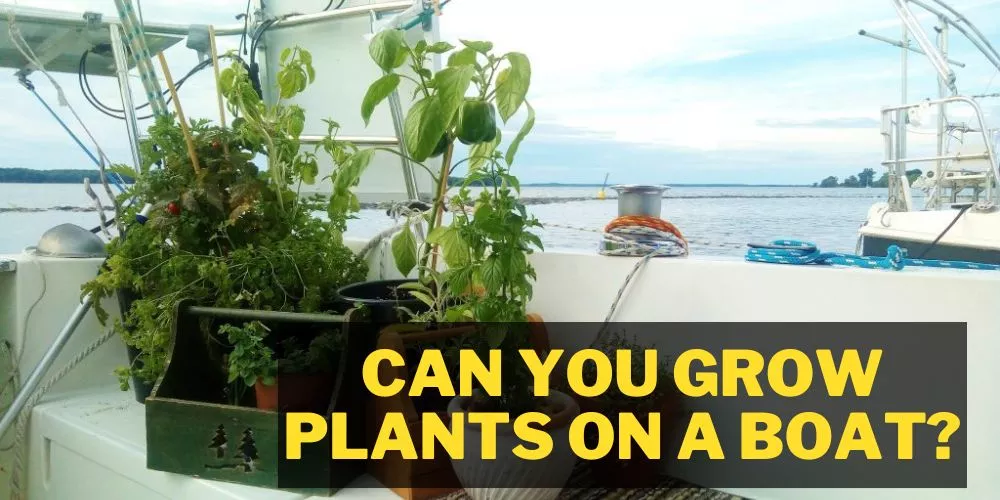Coffee grounds can be used as a natural fertilizer in gardening. The high nitrogen content in coffee grounds makes them a great soil amendment that can improve plant growth and health.
They can also be used as a pest control method to deter slugs, snails, and ants. Additionally, coffee grounds can help balance the soil’s pH level, making it more acidic, which is beneficial for plants like blueberries, tomatoes, and roses.
But, are coffee grounds good for aloe vera plants as well?
No, coffee grounds are not good for aloe vera plants. Aloe vera plants prefer neutral to alkaline soil, and adding coffee grounds to the soil can make it acidic and impede the growth of the plants. Aloe vera plants thrive in low-nutrient environments, so coffee grounds are not beneficial.
However, used coffee grounds can be added directly to the soil or used for composting to grow aloe vera plants.
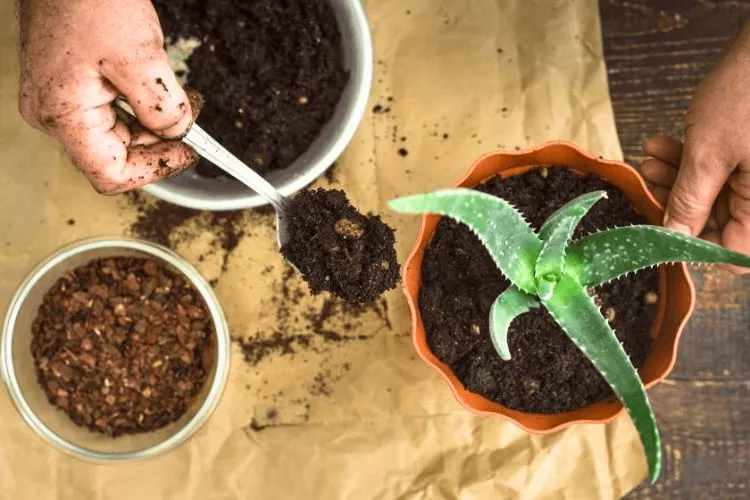
Are coffee grounds good for aloe vera plants?
Using coffee grounds for aloe vera plants is not recommended unless you are a seasoned gardener and know exactly how much coffee grounds should be added to growing aloe vera. Coffee grounds are somewhat acidic, with a pH of 6.2, which could be detrimental to aloe plants.
In conclusion, coffee grounds can benefit aloe vera plants in small amounts. Still, it’s important to keep the number of coffee grounds added to the soil low to avoid over-fertilization and to dilute the fertilizer used.
How to Use Coffee Grounds for Aloe Vera Plants?
Using coffee grounds for aloe vera plants can be beneficial in small amounts by adding nutrients to the soil and improving drainage and aeration. However, aloe plants prefer neutral to alkaline soil, and coffee grounds are somewhat acidic, so it’s important to use them sparingly.
Preparing Coffee Grounds
To prepare coffee grounds for aloe vera plants, collect used coffee grounds from your daily coffee routine. Let them cool completely before using them in the soil. Aloe vera plants thrive in well-draining soil, so mix the coffee grounds with other soil amendments such as perlite, sand, or peat moss.
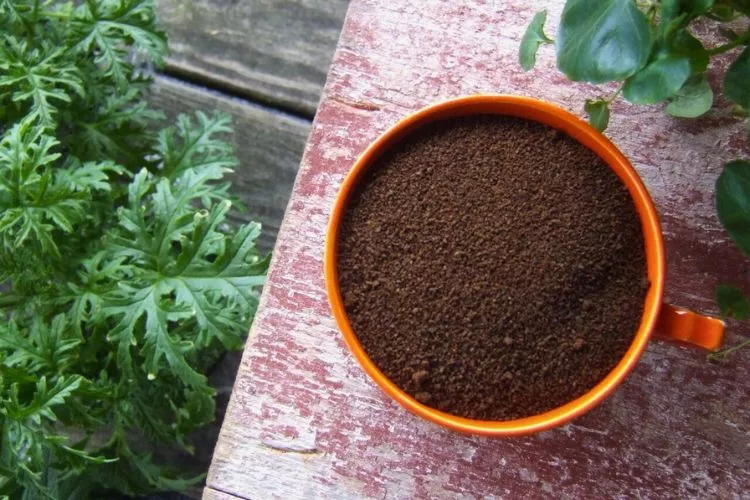
Using too much coffee grounds can make the soil too acidic, which is not ideal for aloe vera plants. It’s recommended to use coffee grounds sparingly and mix them with other soil amendments in a ratio of 1:3 or 1:4. This will help provide the aloe vera plant with the nutrients it needs without damaging its delicate root system.
Applying Coffee Grounds to Aloe Vera Plants
Coffee grounds are a natural source of nutrients and minerals. They can be used to improve the soil in your aloe vera plant and help with pest control and disease prevention.
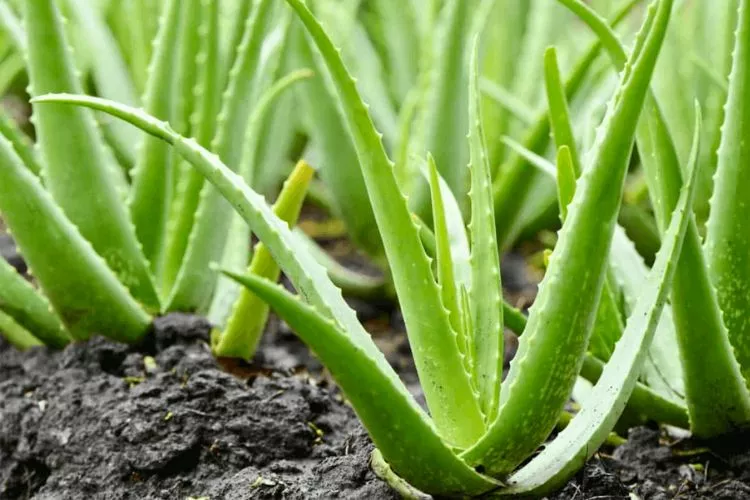
To prepare coffee grounds for use on your aloe vera plants:
- Place the used coffee grounds into a paper bag or other container with a lid (to prevent ants from getting inside).
- Leave them out at room temperature for about three days before adding them to your garden soil; this allows any harmful chemicals in the coffee to evaporate away from your plants’ roots.
Gathering Coffee Grounds
The first step in applying coffee grounds to aloe vera plants is to gather the used coffee grounds from your daily routine. Let the grounds cool completely before using them, as they will be much easier to handle when they’re not hot.
Mixing Coffee Grounds with Soil
Coffee grounds can be mixed with other soil amendments, such as perlite, sand and peat moss. The ratio of coffee grounds to these materials is typically 1:3 or 1:4. For example if you have 10 gallons of potting mix (a standard size for most containers), you would add 3-4 cups of coffee grounds.
Coffee grounds have been shown to increase the soil’s acidity, which helps prevent root rot and other fungal diseases in aloe vera plants. They also provide nutrients like nitrogen that help promote healthy growth in your plant!
Applying Coffee Grounds to Aloe Vera Plant
- Sprinkle the coffee grounds around the base of the aloe vera plant.
- Work the grounds into the soil, but avoid getting them on your aloe vera plant.
Watering the Plant
When watering your aloe vera plant, it’s important to avoid getting the water on its leaves. The best way to do this is by watering around the base of your aloe vera plant and allowing it to soak into the soil.
This will allow your plant to get plenty of moisture without risking damage from excess moisture or direct contact with water.
Monitoring the Plant
- Check the soil regularly for signs of over-acidification.
- Monitor the aloe vera plant for signs of stress.
Troubleshooting
If the soil becomes too acidic, add some lime to balance it out. If the aloe vera plant appears stressed, reduce the coffee grounds used and water more often.
Precautions to Consider
When using coffee grounds on aloe vera plants, it is important to consider a few precautions. Firstly, coffee grounds should be used sparingly as excessive amounts can make the soil too acidic for the plants.
Secondly, mixing the coffee grounds with other soil amendments such as perlite, sand, or peat moss is important to avoid clumping and ensure proper drainage.
Thirdly, coffee grounds should never be applied directly onto the aloe vera plant as they can burn the leaves. Lastly, monitoring the soil’s pH levels and the plant’s health regularly is essential to avoid any adverse effects.
What is the best fertilizer for aloe vera plants?
Aloe vera is a succulent plant that can be grown indoors. It’s known for its medicinal properties and healing powers, but it is also a great addition to your home decor. Aloe vera needs fertilizer to grow well and produce healthy leaves.
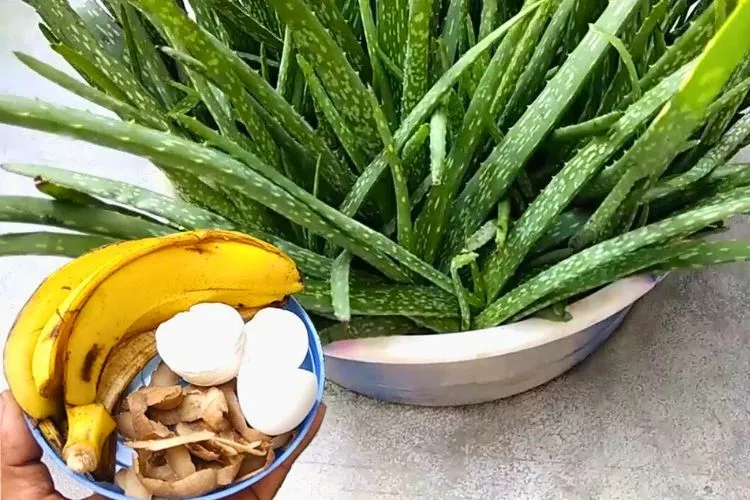
Natural fertilizers are more environmentally friendly than chemical-based ones, so they’re the best choice for growing your aloe vera plants organically.
Types of Natural Fertilizers
There are many different types of natural fertilizers that you can use to fertilize your aloe vera plants. Here are some examples:
- Compost – This combines organic matter, such as leaves and grass clippings, mixed with soil. It’s usually available in bags at garden centers or online.
- Manure – Cow manure is perhaps the most common form of this type of fertilizer; however, horse manure also works well! If you can access animal waste from your own farm animals (or even if not), it makes an excellent addition to any plant’s diet!
- Fish Emulsion – This liquid contains fish remains and seaweed extract along with other ingredients that help break down into nutrients for plants’ roots systems when applied directly onto their leaves by watering them down first before putting them out on top so they don’t burn anything off during application process which could cause harm instead being beneficial towards growth rates overall but still need careful
Attention should be paid towards keeping track while doing so. Just make sure not too much gets applied; otherwise, you risk burning off foliage completely off altogether, which would mean no more leaves left over anymore either way once dried up completely.
So the best advice here would be double check everything carefully beforehand before proceeding forward just so nothing goes wrong down the road later down the line after everything else has been done correctly the first time around completed successfully completed properly done correctly.
Preparing Natural Fertilizer
- Mixing Natural Fertilizer: Natural fertilizer should be mixed with water and applied to the soil around your Aloe Vera plant. The ratio of fertilizer to water depends on how concentrated your natural fertilizer is, but generally speaking, 1 part natural fertilizer to 3 parts water will work well for most plants.
- Diluting Natural Fertilizer: Suppose you’re using a very concentrated form of natural fertilizer (for example, pure liquid fish emulsion). In that case, it’s best to dilute it before applying it directly onto the plant or its roots (this will help prevent burning). To do this, add more water until you reach a ratio that works for your particular product type (see above). Then apply as directed above!
Applying Natural Fertilizer to Aloe Vera Plants
- Sprinkle fertilizer around the base of the plant.
- Work it into the soil, avoiding contact with the plant.
Watering the Plant
Watering the plant is an important part of caring for it. Aloe vera plants thrive in dry climates but also need water to survive. You should only water your aloe vera plant when the soil feels dry.
If you notice that your plant has lost its leaves or is wilting, it could be a sign that it needs more water than usual.
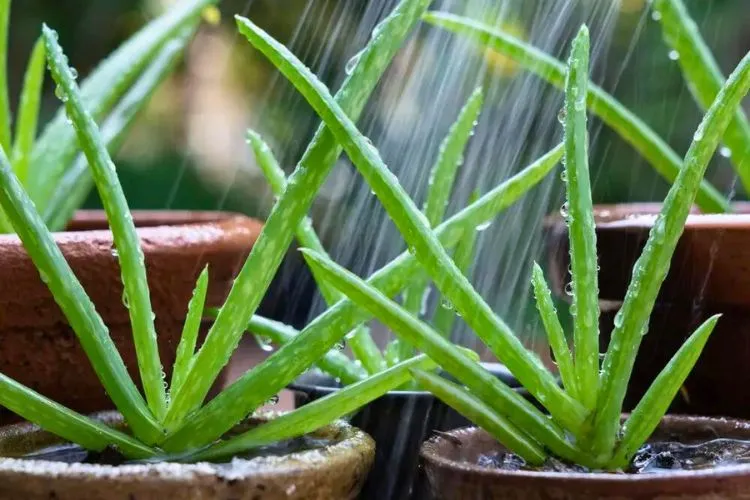
If you’re using tap water on your aloe vera plants (which we recommend), ensure there aren’t any chemicals in it before watering them with it!
Monitoring the Plant
- Regularly check the soil for signs of over-acidification. If your aloe vera plant is growing slower than usual or its leaves are turning yellow, it may be time to add more fertilizer.
- Monitor your aloe vera plant for signs of stress. If you see brown spots on leaves, this could be a sign that your plant isn’t getting enough light or water–or that it’s being exposed to too much sun or heat!
Organic Fertilizers
- Compost tea: This liquid can be made at home by steeping compost in water for several days. The resulting mix contains many nutrients and beneficial microorganisms, which are then sprayed on your plants.
- Worm castings: These are the cast-off waste products of earthworms, which contain lots of nutrients that will help your aloe vera grow well.
- Fish emulsion: This is an organic fertilizer made from fish waste and other ingredients that you can buy at most garden centers or online retailers like Amazon or eBay (you’ll want to avoid those sold at Walmart). It’s highly effective at feeding plants nitrogen- an important nutrient for healthy growth- but should only be used once every few months due to its high salt content (which isn’t good for plants over time).
- Seaweed extract: Seaweed extracts contain many minerals needed by aloe vera plants, including iron and potassium; they also add some extra moisture into the soil when watered onto it before use
Benefits of Organic Fertilizers
Organic fertilizers are safe and provide essential nutrients for your aloe vera plants. They help promote healthy growth and prevent diseases, which can be caused by poor nutrition or an excess of certain minerals.
Other Requirements for Aloe Vera Plants
Aloe Vera plants require essential nutrients such as nitrogen, phosphorus, potassium, calcium, and magnesium for healthy growth and development. Nitrogen is essential for producing chlorophyll, which is needed for photosynthesis.
Phosphorus is necessary for root development and flower production.
Potassium helps improve stress tolerance and disease resistance. Calcium and magnesium are important for cell wall development and overall plant health. A lack of these essential nutrients can result in stunted growth, yellowing leaves, and poor overall health of the Aloe Vera plant.
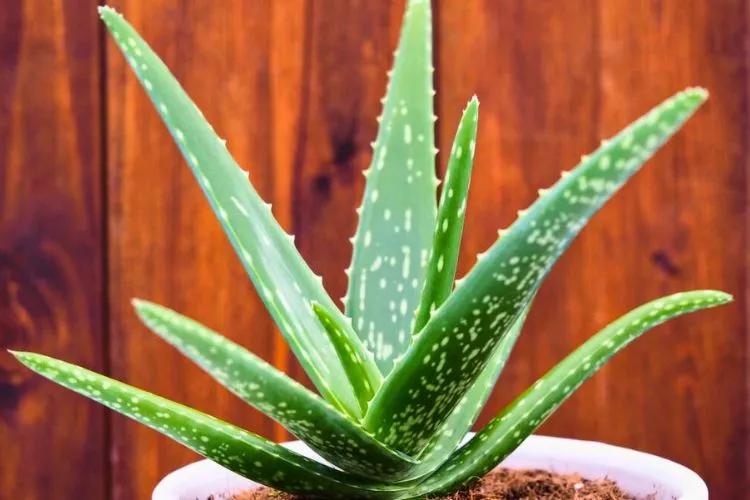
Soil type plays a critical role in the growth and development of Aloe Vera plants. A well-draining soil mix that is sandy or loamy with a pH level between 6 to 8 is ideal.
The soil should also contain organic matter, such as compost, which provides nutrients and helps with moisture retention. The right soil type ensures that the Aloe Vera plant has access to the necessary nutrients and water while allowing for proper drainage.
Poor soil type can result in waterlogged soil, leading to root rot and damage to the plant.
The frequency of fertilization for Aloe Vera plants varies depending on the growing conditions. If grown in a pot, monthly fertilization and weekly watering when the soil feels dry are recommended.
In outdoor gardens, fertilization should be done twice a year with a balanced fertilizer containing nitrogen, phosphorus, and potassium.
Half the recommended rate should be applied on each side of the plant’s base. Ready-made fertilizers are available for those who do not want to mix their solutions. It is important to ensure that the fertilizer contains all three macronutrients required for Aloe Vera plant growth.
Conclusion:
In conclusion, coffee grounds can benefit Aloe Vera plants when used in moderation. The grounds provide the plant with nitrogen and other important nutrients, which can improve overall growth and health.
However, excessive use of coffee grounds can lead to soil acidity, harming the plant. Mixing the coffee grounds with other organic matter and monitoring the soil’s pH levels is important. Incorporating coffee grounds into your
Aloe Vera plant’s care routine can be a great way to promote healthy growth and development.


